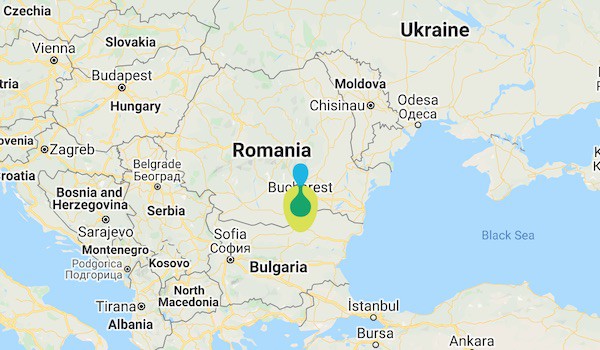Romania’s entry into the European Union has had a massive impact on Romanians, whether we are talking about consumers or talking about food producers. Consumers had access to products in the Single Market, and local producers were required to have the same systems of traceability in the food chain as all producers who want to sell on the European Union market.
– So, is Romania’s entry into the EU beneficial or not for Romanian food producers and consumers?
Implementation of the traceability norms’ consequences on Romanian food producers
According to the Codex Alimentarius Commission 60-2006, traceability defines the ability to track the movement of food from the farm to the plate, in all stages of production, processing, storage and distribution to the final consumer (who buys food for consumption and not for resale).
According to Article 18 of Regulation 178/2002 of the European Parliament, the traceability:
- it is mandatory to be established at all stages of production and processing;
- food producers are required to have systems or procedures by which to register and to be able to put at the disposal of the authorities the required information on both internal and external traceability.
Internal traceability represents food tracking within a single company.
External traceability represents the information that company receives along with a product from suppliers involved in the previous stages of production.
The implementation of an efficient traceability system is useful for ensuring food safety and quality, but there are implementation factors that can be economically harmful for small, local producers, in terms of costs. And according to Regulation 128/2002, the responsibility for food traceability implementation costs and demands rests entirely on food producers.
Small producers, farmers, fishermen or shepherds are not given free training in order to implement an optimal traceability system, which represents an additional cost added to the already higher production price than that payed by the big producers.
In addition, total trade liberalisation in EU member countries (creating the “single market”) determines the possibility of dumping prices either by multinational corporations with high financial power or by companies in rich countries – where:
- agriculture is subsidised
- the level of automatisation and specialisation of the personnel is more advanced than in poor and middle income countries
- policies regarding the protection of local food producers help them to produce food at a lower price than those in developing countries that just entered this “single market”
Thus, free trade in EU member countries practically suppresses the development of local food production because of the much lower production prices and because of the lack of protection of producers with higher production costs (either due to lack or insufficient subsidies for small producers or due to lack of money for the specialisation of the personnel or the optimum endowment of the production units).
Many small, local food producers fail to meet the required food safety and quality standards of traceability, thus they are not able to sell their products either at a competitive price in their own country or in the single market.
The endowment and training necessary to implement the traceability systems limit the access of small producers to the single market, pushing them towards bankruptcy in the face of dumping or monopoly policies of large companies or the state.
However, according to the “Declaration on World Food Security” FAO/WHO/1996, the legal definition given to food security does not include the right to food or access to productive resources, but only “access to food”.
Thus, the state does not assume legal obligations or mechanisms to protect the poor or malnourished from the rich, which can hinder their access to productive resources. From a legal point of view, the state is not responsible neither for the hunger, undernutrition or malnutrition of the population nor for the welfare of the local producers.
And the economic inequity between the highly developed and developing EU countries, as well as the social polarisation in our own country, increase both the financial vulnerability of small local producers and the food vulnerability of the poor population.
And, according to the International Planning Committee for Food Sovereignty (2002), “food sovereignty is the right of individuals, communities, populations and countries to define their own policies regarding agriculture, labor, fishing, food and land”.
Sovereignty includes the real right to food and to produce food, and we have almost lost that right because many Romanian food producers cannot afford financially to the big producers in the EU, who can produce and sell more and cheaper on the Romanian market.
In the absence of laws protecting the local food producers, the only alternative of maintaining the right of food sovereignty of the Romanians belongs to the Romanians themselves, by mainly buying the products produced in Romania (optimally, made of ingredients also produced in Romania – which is a second big problem, considering that many large food companies are, in fact, foreign companies that use raw material from other countries, from us using only cheap labor power and nothing else).
In today’s economic context, where free trade rules force the access to foreign products, the promotion of “Made in Romania” foods and the support of agriculture are essential for maintaining Romania’s food sovereignty.
The consequences for the food consumers of the implementation of the Codex Alimentarius rules
The Codex Alimentarius Commission – created by the Food and Agriculture Organization (FAO) and the World Health Organization (WHO) in 1963 under the umbrella of the United Nations – regulates every aspect of production of the food consumed by ± 95% of the world’s population.
The basic official principles of Codex Alimentarius are: consumer protection and fair international trade. Food safety is the central value, the scientific basis emphasised to be extremely solid.
However, the acceptance of the fungicide containing Initium without public consultation (which, according to WHO, is absolutely mandatory) seems to be in a hurry.
On January 11, 2010, Romania joined the Codex Alimentarius Commission (1) and the first duty as a member was to willingly accept to be the first country in the world to use BASF’s new fungicide: Ametoctradin (Initium) (2).
In accordance with Article 8 of Directive 91/414/EEC – regarding the placing on the European market of plant protection products – it is stipulated that an EU Member State may provisionally authorise, for a period not exceeding 3 years, the placing on its own market of plant protection products containing new substances (defined as active substances that are not included in the annex to this directive as being active substances authorised as safe for humans) to gradually evaluate the impact on the population.
By law, active substances that are not known to be safe for human consumption – such as Initium – can be used legally in the production of plants for human consumption, to scientifically evaluate the impact on humans.
And, although many richer and more “civilised” countries than Romania welcomed our decision, they did not rush to authorise the use of the fungicide with Initium in their own countries.
Here is a question asked by two Romanians to the Commission of the European Parliament on February 22, 2010 (code E-0918/10):
„Written question from Rareş-Lucian Niculescu (PPE) and Elena Oana Antonescu (PPE) to the Commission of the European Parliament:
Subject: Evaluation of fungicide with Initium in accordance with the norms of Directive 91/414/EEC
In January, Romania granted a temporary authorisation for the fungicide containing Initium for a period of three years, in accordance with Article 8 of Directive 91/414/EEC corresponding to the placing on the market of plant protection products. The substance is used for the antifungal protection of grapes and vegetables.
This fungicide was the subject of an evaluation report by the European Food Safety Authority, adopted in October 2009 (“EFSA-Q-2009-00700 – Reasoned opinion of EFSA: Setting of new MRLs for BAS 650 F”) for table or wine grapes, tomatoes, peppers, cucumbers, melons and green salad. Considering the Romanian citizens worried about the possible negative impact that the use of this fungicide could have on health, can the Commission answer the following question:
Given the fact that this evaluation report has not been analysed by other researchers (the peer review procedure) and that the conclusions of the report are considered provisional, what is the current status of this procedure in accordance with Directive 91/414/EEC?
Link to the European Parliament
And here’s the answer from the European Parliament.
Questions in Parliament
Date: March 29, 2010
Code: for question E-0918/10 and P-1123/10
Answer given by Mr Dalli on behalf of the Commission:
“In order to facilitate the placing on the market of new and innovative plant protection substances, Article 8 (1) of Directive 91/414/EEC (1) on the placing of plant protection products on the market allows the possibility of authorizing products containing new active substances for a limited period of three years, if a complete file has been submitted and if the member state authorizing the use of the product sets high safety standards in accordance with Directive 91/414/EEC.
Commission Decision 2009/535/EC (2) recognizes in principle the file submitted by BASF SE to support the inclusion of the substance under the development license ‘BAS 650F’. This substance has the ISO name of ‘ametoctradin’ and the registered trademark ‘Initium’. Therefore, any member state may provisionally authorize the use of products containing this substance.
When authorizing a plant protection product, a member state must assess whether the high standards of human and animal safety and those of environmental protection under European law are met for all types of guaranteed use. Granting the provisional authorization is no exception to this rule, so safety standards are not compromised. When granting the temporary authorization, the member state decides to undertake the entire risk assessment on its ownand, therefore, not to fully benefit from the peer review procedure. However, in doing so, the member state may accelerate the entry into the market of innovative products, which may be safer for consumers and the environment compared to other products.
The Commission intends to adopt temporary maximum doses (MRLs) (3) for ametroctatid (Initium) based on EFSA’s substantive opinion of October 2009 (4). The proposed MRLs are provisional due to the lack of completion of the peer review procedure, being based on the information evaluation from the temporary evaluation of the ametoctradin report. Both reports are produced by the Netherlands, which conducts the EFSA peer review procedure. The procedure has already been voted by SCFEAH and it is expected to be published in the Official Journal at the latest in the third quarter of 2010“.
Link to the European Parliament
So, despite the fact that Initium’s safety has not been evaluated by other scientists besides those employed by BASF, the product is still used today, years later, legally in about 30 countries, despite the fact that the authorization is only temporary and cannot guarantee the safety of consumption over human health.
All in the name of food safety and of fair trade.
The idea behind the use of a new substance with toxic potential under the provisional authorization of Codex Alimentarius has behind the growing global population and the need to develop biotechnologies that increase productivity in agriculture and the term of guarantee of food products.
It does not seem to matter that the number of children born per woman worldwide dropped from 5.02 to 2.65 between 1950 and 2005 and that this number is expected to drop to 2.05 by 2050 (3).
It also does not seem to matter that the mortality rate is estimated to increase from 56 million per year to 80 million per year (4).
Economists make mathematical, not biological, estimates not taking into account the fact that the fertility rate is declining and that mortality rate gradually will double.
At the global level, the question of the survival of the people living in poor countries is raised, only that the population of these countries seems to have nothing to say about the problem of their own survival.
– These people are not asked about why would they prefer to die: from hunger or from cancer, or from diseases of the reproductive system, autoimmune diseases, endocrine or other neurological dysfunctions?
Big countries decided for them that they must be fed with whatever possible even if the food they are fed with might make them ill.
All of these are side effects of possible exposure to fungicides and pesticides quoted from the official website of the World Health Organization. WHO also claims that adults are at lower risk than children and that more deaths due to fungicides have been recorded in developing countries (5,6).
The cancer rate of Romanians increased with ± 30%, from 51,450 cases in 2011 to 78,760 cases at the end of 2012 (7).
And of course no one can associate the use of Initium with this increased cancer incidence.
But, although there is no evidence to link Initium with the 30% increase in cancer rates in the first two years after Initium’s provisional authorization, we cannot deny the coincidence. At least this coincidence should force WHO to consider all possible etiological factors that have caused so many Romanians to develop cancer in such a short time.
If Initium has been provisionally authorized for evaluation, at least the evaluation should be done.
However, despite the fact that years have passed since the provisional authorization to evaluate the effects on humans, searching for the keywords ‘Initium’ or ‘Ametoctradin’ does not get any results neither on the official website of Codex Alimentarius, nor on the one to WHO (8). All we can get, if we insist on the searches, is the Official Opinion, without the peer review procedure (which has not yet been done, although many more than the initial 3 years have passed since the provisional authorization), published in the EFSA Journal in 2009.
– Is it sufficient for the food security of Romanians?
– Is it sufficient for the health of the people in the 30 countries that continue to provisionally authorize the use of Initium?
– Given the harmful impact, shouldn’t potentially toxic substances be tested and pre-approved as safe by other scientists other than those paid by the manufacturers of these substances themselves? (9)
– And is the legal pre-authorization of a potentially dangerous substance without the peer review procedure for the benefit of the people?
– What’s the rush?!
On the WHO website, there are a number of protocols and warnings regarding the toxicity of pesticides and fungicides on both human health and the environment. Thus, countless fungicides and pesticides provisionally authorized have been shown to induce cancer and infertility (10-13).
– Isn’t this proof that the provisional approval procedure is in fact the legal acceptance to use people as lab rats?
– And how can scientists determine if the maximum permissible doses for human safety have a protective effect, considering that the actual quantitative consumption of plants by various people cannot be estimated?
– And shouldn’t there have been a public debate prior to the granting of the Initium temporary authorization?
Because the legal use of Initium has not been discussed in the media, announced or debated except in the corners, most Romanians could consume over the amount for which the maximum provisional doses allowed for Initium were calculated – from basic products such as bread, pasta and other bakery products, cucumbers, tomatoes, onions, potatoes, grapes, melons, green salad.
However, although it seems that we were used as laboratory mice (with the agreement of the Romanian authorities of course), in Romania we still have access to tomatoes that taste like tomatoes and to strawberries that do not taste like cucumbers.
We can still buy eggs from chickens raised in the back yard and milk from small local producers.
We still cook at home…
The entry of Romania into the civilised world of the European Union and into the Codex Alimentarius universe had a powerful impact:
- on local food producers, many failing due to the inability to provide the standards and norms in force at competitive prices, not even on the local market,
- on food consumers, many cannot avoid the consumption of food of plant origin enhanced with new substances such as Initium, substances not yet proven to be safe for human consumption.
Romanian legislation by which local producers and Romanian consumers should be protected should really protect us, not just allow others to use us as a market for sales and as lab rats, behind the pink idea fair trade for all.
But, unfortunately, someone has to pay the salaries of scientists.
The reason that moves science is not charity, but profit. And we, the Romanian consumers and producers, are not so rich as to attract the attention of the big international corporations.
The studies are done on us.
But they are done to justify the use of these “new innovative substances” in countries with much greater financial power (14).
Maybe that’s why we still rank only 10th in the top of European countries with the most cancer patients.
Maybe that’s one of the why the big, modern, civilised countries are at the top of cancer incidence.
These tests are not for us.
Quoted studies
1: Taylor, Paul Anthony. Codex Guidelines for Vitamins and Minerals – Optional or Mandatory? Dr. Rath Health Foundation. http://www4.dr-rath-foundation.org/features/codex_wto.html.
2: World Resources Institute. Earthtrends.wri.org. Retrieved 2011-11-30.
3: World Population estimates by the US Census Bureau. USCB. Retrieved May 22, 2012.
4: http://www.who.int/bulletin/volumes/82/11/editorial31104html/en/
5: http://www.who.int/mediacentre/news/notes/2004/np19/en/
6: Ferlay, J., et al. Cancer incidence and mortality patterns in Europe: Estimates for 40 countries in 2012. European Journal of Cancer (2013). International Agency for Research on Cancer, http://eco.iarc.fr/eucan/Country.aspx?ISOCountryCd=642.
7: http://www.codexalimentarius.org; http://www.who.org.
8: http://www.efsa.europa.eu/en/efsajournal/doc/1367.pdf
9: Cantelli-Forti, G., M. Paolini, and P. Hrelia. Multiple end point procedure to evaluate risk from pesticides. Environmental health perspectives 101.Suppl 3 (1993): 15.
10: Hrelia, P. et al. Cytogenetic effects of Metalaxyl on human and animal chromosomes. Mutation Research/Genetic Toxicology 369.1 (1996): 81-86. doi: 10.1016/S0165-1218(96)90051-8.
11: Poli, P. et al. Evaluation of the genotoxicity induced by the fungicide fenarimol in mammalian and plant cells by use of the single-cell gel electrophoresis assay. Mutation Research/Genetic Toxicology and Environmental Mutagenesis540.1 (2003): 57-66. doi: 10.1016/S1383-5718(03)00165-7.
12: Hrelia, P., Fimognari, C., Maffei, F., Vigagni, F., Mesirca, R., Pozzetti, L., … & Forti, G. C. (1996). The genetic and non-genetic toxicity of the fungicide Vinclozolin. Mutagenesis, 11(5), 445-453. doi: 10.1093/mutage/11.5.445.
13: Fan, WuQiang et al. Atrazine-induced aromatase expression is SF-1 dependent: implications for endocrine disruption in wildlife and reproductive cancers in humans. Environmental Health Perspectives 115.5 (2007): 720.
14: BASF sells INITIUM® products in 11 European countries and obtained authorizations in 28 countries worldwide. BASF press release: http://www.basf.com/group/pressemitteilungen/P-10-110.





